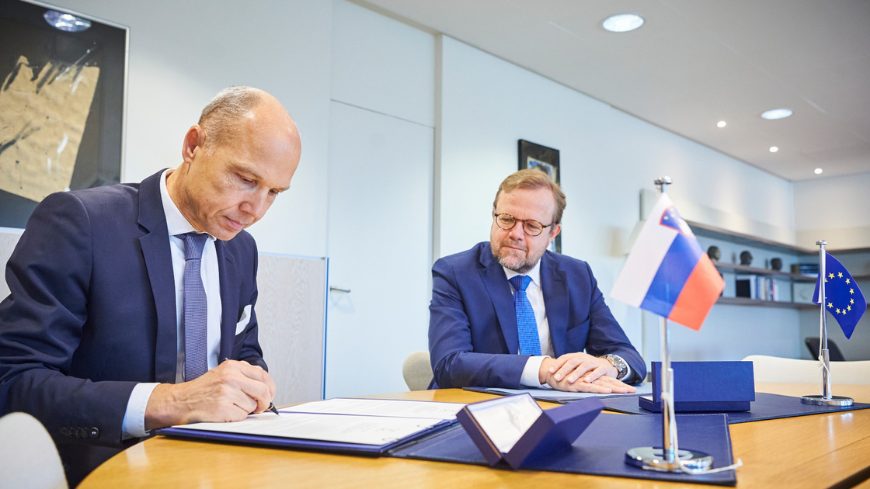On 03 May 2022, Ambassador Andrej SLAPNIČAR, Permanent Representative of Slovenia, in the presence of the Deputy Secretary General Bjørn Berge, deposited the instruments of ratification of the
- Council of Europe Convention on counterfeiting of medical products and similar crimes threatening public health (CETS 211), known as the MEDICRIME Convention
- Council of Europe Convention against Trafficking in Human Organs (CETS No. 216).
Both Conventions will enter into force for Slovenia on 1 September 2022.
The Council of Europe Convention on the counterfeiting of medical products and similar crimes involving threats to public health (CETS No. 211), known as the Medicrime Convention (CETS No. 211) is the first international criminal law instrument to oblige States Parties to criminalise:
- the manufacturing of counterfeit medical products;
- supplying, offering to supply and trafficking in counterfeit medical products;
- the falsification of documents;
- the unauthorised manufacturing or supplying of medicinal products and the placing on the market of medical devices which do not comply with conformity requirements.
The Convention provides a framework for national and international co-operation across the different sectors of the public administration, measures for coordination at national level, preventive measures for use by public and private sectors and protection of victims and witnesses. Furthermore, it foresees the establishment of a monitoring body to oversee the implementation of the Convention by the States Parties.
Council of Europe Convention against Trafficking in Human Organs (CETS No. 216)
The Convention calls on governments to establish as a criminal offence the illegal removal of human organs from living or deceased donors:
- where the removal is performed without the free, informed and specific consent of the living or deceased donor, or, in the case of the deceased donor, without the removal being authorised under its domestic law;
- where, in exchange for the removal of organs, the living donor, or a third party, receives a financial gain or comparable advantage;
- where in exchange for the removal of organs from a deceased donor, a third party receives a financial gain or comparable advantage.
The Convention also provides protection measures and compensation for victims as well as prevention measures to ensure transparency and equitable access to transplantation services.
More information:
Follow us on social media:
- Twitter MEDICRIME - Twitter DG1 - Facebook - LinkedIn - Instagram - YouTube








